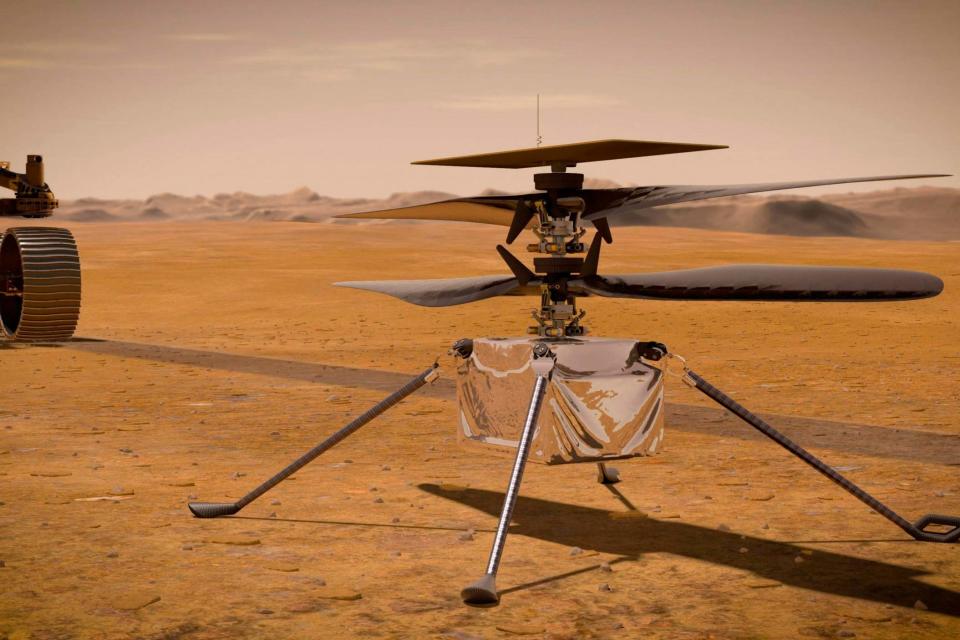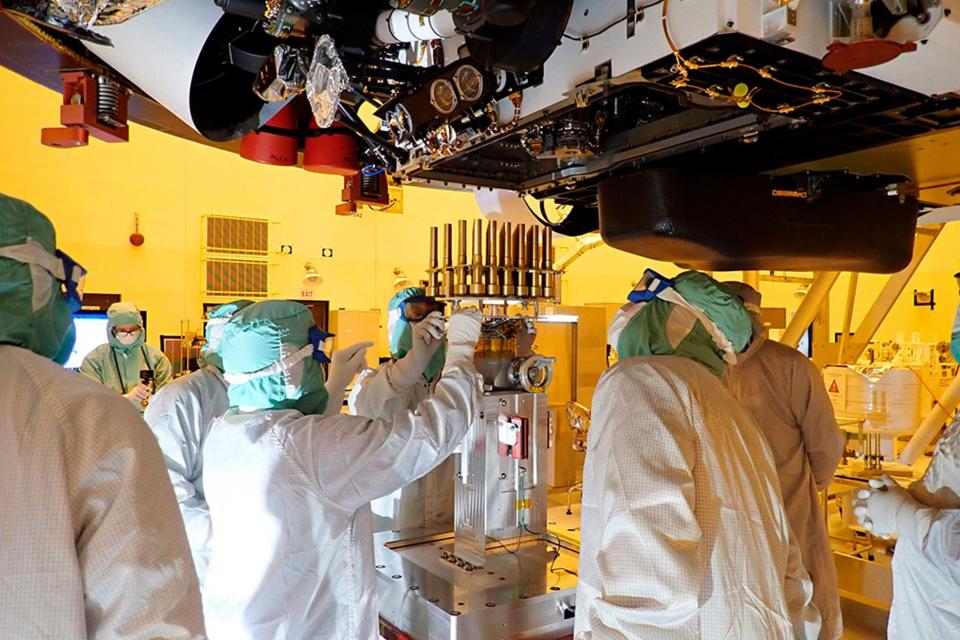Nasa Mars rover: UK scientists will help with search for life on Red Planet in new mission

UK scientists will help search for evidence of life on Mars in a new mission to the Red Planet.
Researchers at Imperial College London and the Natural History Museum will help the Nasa Perseverance rover select rock and soil samples to be brought back to Earth, as it searches for evidence of ancient microbial life.
The mission to Mars is set to launch on Thursday.
Jezero crater, the 28-mile (45km) wide destination of Perseverance, contains sediments of an ancient river delta, a location where evidence of past life could be preserved if it ever existed on the planet.
Professor Sanjeev Gupta, from Imperial, will help Nasa oversee mission operations from a science and engineering point of view.

"This is crucial to understand what the Martian climate was like early in Mars’ history and whether it was habitable for life," he said.
"This information will be used to help us define the best spots to collect rock samples for future return to Earth.
"Laboratory analyses of such samples on Earth will enable us search for morphological and chemical signatures of ancient life on Mars and also answer key questions about Mars’ geological evolution."
Professor Mark Sephton, also from Imperial, will help identify samples of Mars that could contain evidence of past life.
"I hope that the samples we select and return will help current and future generations of scientists answer the question of whether there was ever life on the Red Planet," he said.

"With one carefully chosen sample from Mars, we could discover that the history of life on the Earth is not unique in the Universe."
Meanwhile, Professor Caroline Smith, from the Natural History Museum, will study the mineralogy and geochemistry of the different rocks found in the crater.
Dr Keyron Hickman-Lewis, who is preparing to join the museum, will study the palaeoenvironments of sedimentary horizons exposed in Jezero crater and the potential for signatures of ancient microbial life preserved within.
"Mars probably presents our best chance of finding life elsewhere in the Solar System, and the fact that Mars 2020 plans to prepare samples for eventual return to Earth gives us a unique opportunity to discover traces of that life," Dr Hickman-Lewis said.
Nasa’s Perseverance rover and the recently launched UAE Hope mission will blaze a trail ahead of the launch of the UK-built Rosalind Franklin rover, due to blast into space in 2022.
The Rosalind Franklin rover, which was built by Airbus in Stevenage, Hertfordshire, will be able to drill 6.5ft (2m) below the surface, gathering samples from regions not affected by radiation.
Perseverance will carry instruments geared to search for the carbon building blocks of life and other microbes and to reconstruct the geological history of the Red Planet.
The instruments will analyse samples from the surface, with selected samples collected by drilling down to 2.8in (7cm) and then sealed in special tubes and stored on the rover.
When the rover reaches a suitable location, it will drop the tubes on the surface of Mars to be collected by a future retrieval mission, which is currently being developed.
Nasa and European Space Agency (ESA) scientists are planning how the samples will be curated on their return.
The rover also carries the Ingenuity Mars helicopter, which will fly short distances and marks the first attempt at powered, controlled flight on another planet.
If the test of the helicopter is successful, it could lead to more flying probes on other planets.
Perseverance will also trial technologies to help astronauts make future expeditions to Mars.
This includes testing a method for producing oxygen from the Martian atmosphere, and identifying other resources such as subsurface water.
Read more
NASA filmed the sun for 10 years and the video is incredible
Ocean on Jupiter's moon may be able to sustain life, says Nasa
Nasa astronaut shares image of Saharan dust plume over Atlantic Ocean
Nasa astronaut 'bangs head' as he enters International Space Station

 Yahoo News
Yahoo News 
